According to researchers at Duke University, habits account for about 40 percent of our behaviours on any given day. Building healthy and productive habits in comparison to unhealthy or sabotaging habits can help you shape the life you want to live.
Every year a lot of new year resolutions fail because people fail to build sustainable habits, mostly because of staring the wrong way. A new habits should be simple, easy and digestible. This is the power of Atomic Habits.
1. Start with an incredibly small habit.
Make it so easy you can’t say no.
Leo Babauta
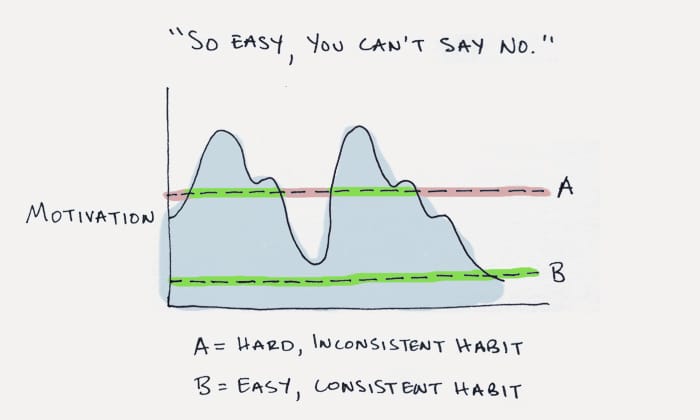
Do you eventualy ending up saying “I just need more motivation.” Or, “I wish I had as much willpower as you do?” Than I like to suggest a new approach to building habits.
Willpower is a muscle, the more you use it the strong it gets, but there is always going to be a point of exhaustion. Motivation rises and falls throughout the day. Stanford professor BJ Fogg calls this the “motivation wave.”
What if you could build habits regardless of your levels of motivaiton or willpower? Pick a new habit that is so easy that you can not fail. So, rather than starting with 50 pushups per day, start with 5 pushups per day. Rather than trying to going to the gym 3x a week, start with putting on your gym clothes 3 times a week and go the gym (without excersing, only if you feel like it).
2. Increase your habit in very small ways.
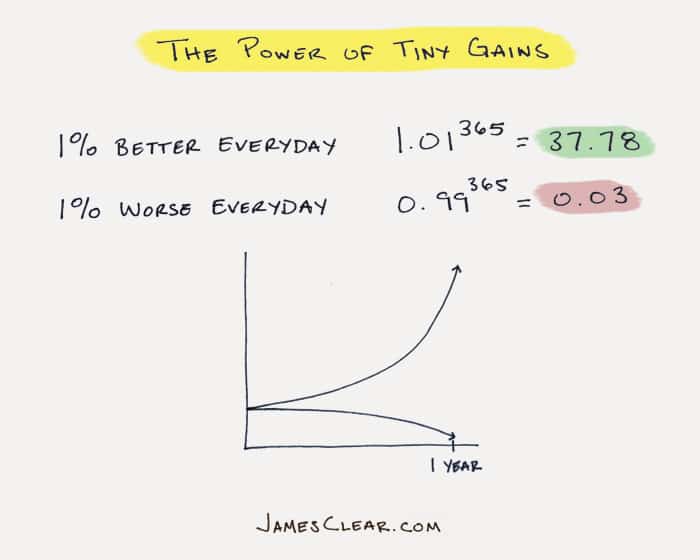
Success is a few simple disciplines, practiced every day; while failure is simply a few errors in judgment, repeated every day.
Jim Rohn
Small daily improvements like 1% are not only more sustainable but also surprisingly effective. It works the other way around too. Small behavoirs like a little bit more drinking or driving instead of walking for a few minutes add up fast.
Trying to do something amazing from the beginning not only is more likely too fail, it is not sustainble if you did not adabt your lifestyle to it.
Start small and gradually improve. Along the way, your willpower and motivation will increase, which will make it easier to stick to your habit for good.
3. As you build up, break habits into chunks.
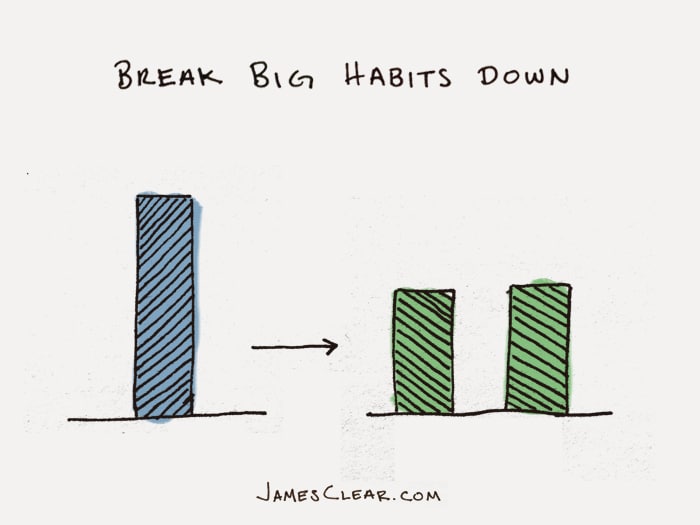
If you continue adding one percent each day, then you’ll find yourself increasing very quickly within two or three months. It is important to keep each habit reasonable, so that you can maintain momentum and make the behavior as easy as possible to accomplish.
If you continue adding one percent each day, then you’ll find yourself increasing very quickly within two or three months. It is important to keep each habit reasonable, so that you can maintain momentum and make the behavior as easy as possible to accomplish.
Building up to 20 minutes of meditation? Split it into two segments of 10 minutes at first. Trying to do 50 pushups per day? Five sets of 10 might be much easier as you make your way there.
4. When you slip, get back on track quickly.
The best way to improve your self-control is to see how and why you lose control.
Kelly McGonigal
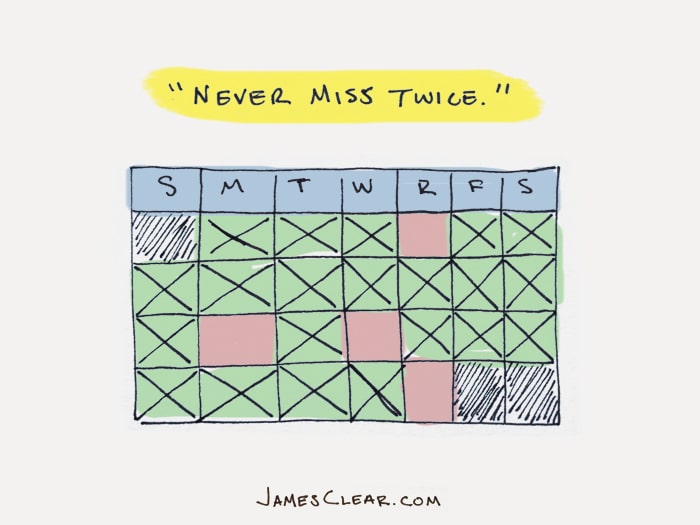
Getting off track and making mistakes will always happen because that is human. However, the only difference between people that get things done and do the work is that they get back on track compaired to letting another good intention go to waste.
So, you shouldn’t expect to fail but you should plan for failure. What will prevent you from completing this new habit? Can I work around those issues?
Another great rule for getting back on track is to never miss a habit twice. This creates a sense of urgency and gives you a little boost in motivation to get back on track.
5. Be patient. Stick to a pace you can sustain.
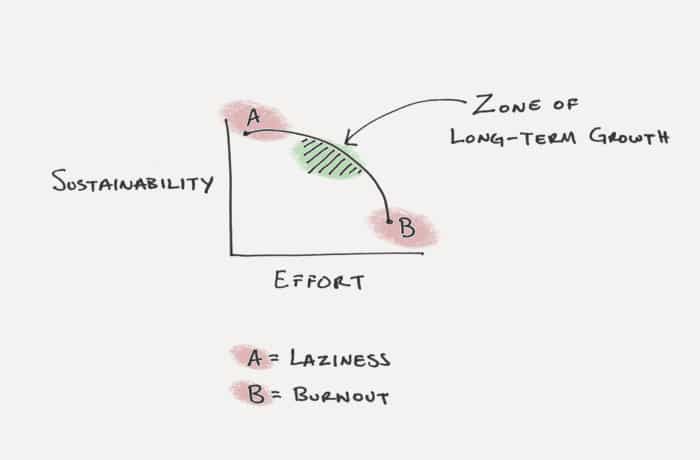
You can make unbelievable progress if you are consistent and able to deffer imitate gratification. It is pleasurable to go all out right from the start, however that is not sustainable. Being able to start slower and get pleasure from your habit streak is way more rewarding in the long term.
This is a skill that will help you in all areas of life.
New habits should feel easy, especially in the beginning. If you stay consistent and continue increasing your habit it will get hard enough, fast enough. It always does.
If you want more practical ideas for how to build new habits (and break bad ones), check out the excellent book Atomic Habits, which will show you how small changes in habits can lead to remarkable results.
Source: https://jamesclear.com/habit-guide
Still curious? Learn more about our platform Growth By Curiosity and discover more…
Last modified: January 1, 2021












